
Kazuo Kuroki
Рождение : 1930-11-10, Matsukasa, Japan
Смерть : 2006-04-12
История
Kazuo Kuroki (黒木和雄 Kuroki Kazuo) was a Japanese film director who was particularly known for his films on World War II and the question of personal guilt.
He attended Doshisha University, but left before graduating, instead finding employment at Iwanami Productions. There he directed PR films and documentary films, while also participating in the "Blue Group" (Ao no kai) with other Iwanami filmmakers such as Noriaki Tsuchimoto, Shinsuke Ogawa, and Yōichi Higashi, a group that was exploring new paths in documentary. Kuroki left Iwanami after experiencing conflicts with the sponsors of Hokkaido, My Love (1960). With Record of a Marathon Runner (1964) that helped spark changes in the Japanese documentary world.
Kuroki switched to fiction film, independently producing Silence Has No Wings (1966) and showing it at the Art Theatre Guild. He became one of the representative figures of ATG and independent Japanese cinema, and was particularly known for a series of works dealing with the atomic bombings of Japan, such as Tomorrow (1988) and The Face of Jizo (2004). These were in part spurred by his growing up near the city of Nagasaki. Kuroki's work also dealt with his own feelings of guilt from the war, as he felt responsible when some of his fellow students, who had been conscripted to work in a local factory, died in Allied bombings and he did not help
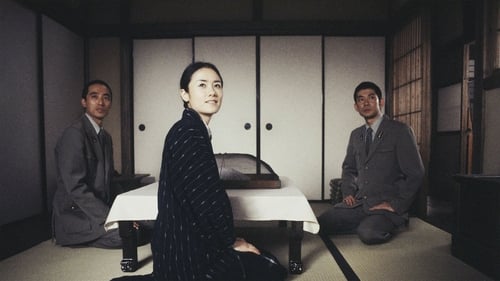
Screenplay
In Kagoshima, in the final days of World War II, an offer of marriage comes to Etsuko Kamiya, who lives with her brother and his wife. The offer comes from Nagayo, but Etsuko is attracted to his friend, Akashi.

Director
In Kagoshima, in the final days of World War II, an offer of marriage comes to Etsuko Kamiya, who lives with her brother and his wife. The offer comes from Nagayo, but Etsuko is attracted to his friend, Akashi.
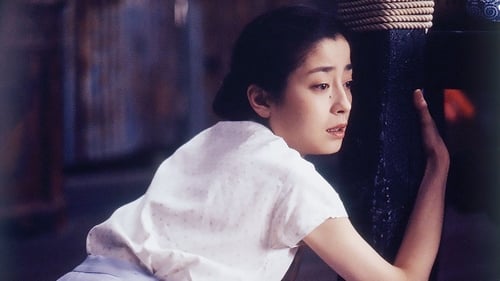
Screenplay
Со времени атомной бомбардировки минуло три года, а в сердце Мицуэ по-прежнему живы образы отца, друзей, многих других людей, погибших 6 августа 45-го. Как жить без них дальше? Имеет ли она право на семейное счастье? Мицуэ снова и снова задает себе эти вопросы, когда получает предложение руки и сердца от застенчивого молодого человека, который часто бывает в библиотеке, где она работает. Преодолеть душевную коллизию дочери помогает погибший отец. Его душа навещает Мицуэ и убеждает ее, что жизнь продолжается и она обязательно должна быть счастлива.

Director
Со времени атомной бомбардировки минуло три года, а в сердце Мицуэ по-прежнему живы образы отца, друзей, многих других людей, погибших 6 августа 45-го. Как жить без них дальше? Имеет ли она право на семейное счастье? Мицуэ снова и снова задает себе эти вопросы, когда получает предложение руки и сердца от застенчивого молодого человека, который часто бывает в библиотеке, где она работает. Преодолеть душевную коллизию дочери помогает погибший отец. Его душа навещает Мицуэ и убеждает ее, что жизнь продолжается и она обязательно должна быть счастлива.
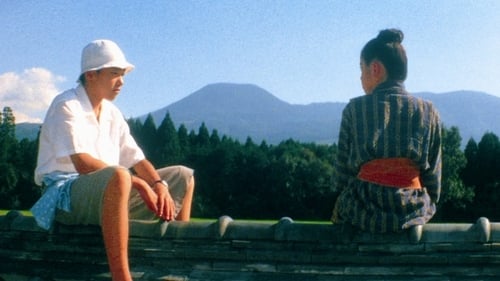
Writer
Commencing well-respected Nippon director Kazuo Kuroki's sixth decade behind the camera, "A Boy's Summer in 1945" (literally "A Beautiful Summer in Kirishima") is a lyric, novelistic drama set in the countryside in the last days before Japan's surrender ending WWII. Striking a welcome retro note in its languid pacing and delicate handling of seriocomic ensemble threads, handsome production is a natural for fests. It might also prove a cornerstone for retrospectives or ancillary releases of works by a helmer ("Preparation of the Festival," "Ronin-gai") who's long been appreciated at home but has won just limited attention abroad.

Director
Commencing well-respected Nippon director Kazuo Kuroki's sixth decade behind the camera, "A Boy's Summer in 1945" (literally "A Beautiful Summer in Kirishima") is a lyric, novelistic drama set in the countryside in the last days before Japan's surrender ending WWII. Striking a welcome retro note in its languid pacing and delicate handling of seriocomic ensemble threads, handsome production is a natural for fests. It might also prove a cornerstone for retrospectives or ancillary releases of works by a helmer ("Preparation of the Festival," "Ronin-gai") who's long been appreciated at home but has won just limited attention abroad.

Screenplay
Kaido is a professional pickpocket who works the Tokyo subway with his young foster-daughter, Rei: She lets herself be groped while Kaido relieves the groper of his wallet. More often than not they're observed by a middle-aged cop, who generally lets Kaido go free. Rei is unsettled when Kaido takes on a young street punk, Kazuki, as an apprentice -- with instructions to make Kaido stop drinking. Kazuki, however, would like to go into business with Rei.

Director
Kaido is a professional pickpocket who works the Tokyo subway with his young foster-daughter, Rei: She lets herself be groped while Kaido relieves the groper of his wallet. More often than not they're observed by a middle-aged cop, who generally lets Kaido go free. Rei is unsettled when Kaido takes on a young street punk, Kazuki, as an apprentice -- with instructions to make Kaido stop drinking. Kazuki, however, would like to go into business with Rei.

Director
Near the end of Japanese civil war, several disgraced ronin living in Edo's red light district attempt to regain their honor by defending a brothel from a hostile militia bent on wiping out local prostitutes.

Screenplay
В этот день 8 августа 1945 года у героев фильма, жителей Нагасаки, произошло много важных событий — какие-то были счастливыми, какие-то грустными, какие-то неожиданными. Но никто из них не предполагал, что это последний день их жизни.

Director
В этот день 8 августа 1945 года у героев фильма, жителей Нагасаки, произошло много важных событий — какие-то были счастливыми, какие-то грустными, какие-то неожиданными. Но никто из них не предполагал, что это последний день их жизни.

Director
Japanese drama film.
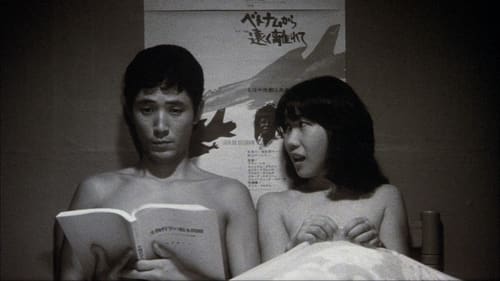
Shrink
"Слушай Песню Ветра" - экранизация одноименного романа Харуки Мураками. Фильм, как и книга, практически весь состоит из размышлений главного героя - студента, приехавшего в родной город на летние каникулы. Мало кого из ценителей творчества писателя оставит равнодушным подобное воплощение на экране режиссером Казуки Омори меланхоличных размышлений о жизни раннего Мураками.

Director
Intellectual collegue professor Sasa becomes obsessed with beautiful Sugiko, a virgin. Eventually, luring her to a love hotel.

Director
В приморском городе находят мёртвых мужчину и женщину, связанных друг с другом. Полиция приходит к выводу, что парочка влюблённых покончила жизнь самоубийством. В это же время в город приезжает якудза из Токио. Он не верит в самоубийство и начинает поиски убийц.
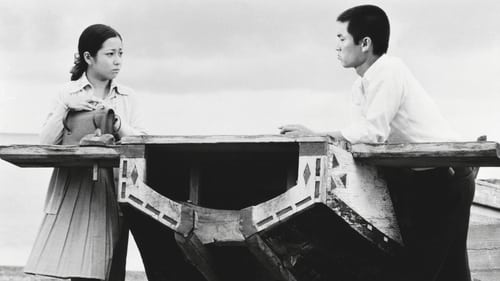
Director
Tateo, young and neurotic, wishes to leave the village his mother has raised him in.

Director
Story of the last three days in the life of Sakamoto Ryoma (1836-1867), imperial loyalist who tried to unite the Choshu and Satsuma clans and prepared the way for the Meiji Restoration (1868).

Director
По роману Такахаси Кадзуми. Мурасэ - телохранитель в семье якудза. Отиай - полицейский, который в юности был активистом студенческого движения. Однажды они встретились и с удивлением обнаружили. что похожи как две капли воды.

Screenplay
Японский моряк Акира решил провести отпуск на Кубе, где все наполнено любовью, музыкой и страстью. Но встреча с Марсией меняет его отношение к Кубе и к революции.

Director
Японский моряк Акира решил провести отпуск на Кубе, где все наполнено любовью, музыкой и страстью. Но встреча с Марсией меняет его отношение к Кубе и к революции.

Editor
Following the journey of a caterpillar along the Japanese islands from Nagasaki to Hokkaido, this allegorical and oblique first feature film by Kuroki depicts in exquisite images a series of encounters and life's turning points.

Screenplay
Following the journey of a caterpillar along the Japanese islands from Nagasaki to Hokkaido, this allegorical and oblique first feature film by Kuroki depicts in exquisite images a series of encounters and life's turning points.

Director
Following the journey of a caterpillar along the Japanese islands from Nagasaki to Hokkaido, this allegorical and oblique first feature film by Kuroki depicts in exquisite images a series of encounters and life's turning points.

Director
Presentation of polymer chemistry-based synthetic fiber, and the manufacturing facilities and production process used by Toray, Japan’s leading textile maker. Also depicts the textiles being sold throughout Europe and the US.

Director
This was a sponsored documentary film by director Kazuo Kuroki of Japan. This highly artistic film focused entirely on Japanese marathon runner Kenji Kimihara. Kimihara finished eighth in the 1964 Olympic marathon with a time of 2:19:49. He had previously won the Japanese trials in 2:17:11 on April 12th of that year. He competed in a total of three Olympic marathons in all (finishing 2nd in 1968, and 5th in 1972) and he won 9 of 18 marathons prior to the Mexico City Games, including the Boston Marathon in 1966. Kimihara’s personal best was 2:13:25.

Writer

Director

Director
From the opening sequence, combining underwater and aerial footage, this masterpiece about the construction of a steam-power plant in Kurihama (south of Tokyo) far surpasses the limitations of the promotional film genre, and emerges as one of the most staggering sensory experiences in Japanese documentary.









